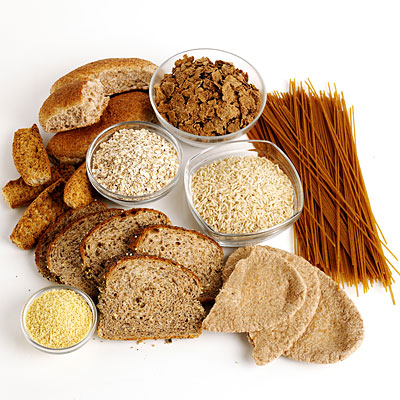Carbohydrates have been demonised in recent times to such an extent that dieters actually shudder at the very thought of consuming carbs in any form. However, despite the bad reputation, there are healthier forms of carbohydrates than others and it is important to understand why certain types of carbohydrates are extremely critical for good health while at the same time it is important to know which carbs need to be chosen for consumption.
When it comes to any form of a weight loss program, carbohydrates often get a bad rap. But not all carbs are evil. Given their innumerable health advantages, they actually demand a rightful place in an individual’s healthy diet. For a body to function optimally well, it is important to get the right kinds of carbohydrates.
Here are some tips on understanding more about the health benefits of carbs and how to choose healthy carbs from the rest.
Almost every food and beverage contains some kind of carbohydrates which are actually a type of macronutrient. Occurring naturally in plant-based food such as grains, carbohydrates found in fresh produce are essential to good health. On the other hand, almost every food manufacturer bulks up the amount of carbohydrates in processed food products, commonly in the form of added sugar or starch. Opt for naturally occurring carbohydrates found in seeds and legumes, grains and seeds, milk and nuts and fruits and vegetables. The complex carbohydrates found in fresh fruits and vegetables, seeds legumes and whole grains contain a good deal of fibre, which is important for the body rather than the simple carbs found in processed foods, which is nothing but empty calories in the form of starch and sugar that only adds to further bulk to the body.
According to the dietary guidelines for Americans, it is recommended that an individual must consume approximately 50 to 60% of carbohydrates as part of his daily calorie consumption. For example, if an individual gets approximately 2000 calories every day, the amount of calories that should be received through the total consumption should be approximately 1000 to 1200 calories, which is more or less 200 to 300g of carbohydrates on a daily basis.
If you are buying packaged foods, please remember to read the carbohydrate content on the nutrition facts label that displays the total amount of carbohydrates, as well as a breakdown of the types of carbohydrates present such as added sugars, naturally occurring sugars, fibre, starch and sugar alcohols. The nutrition facts label might also list down a separate mark-up of the amount of soluble fibre, sugar and total fibre in the particular product.
It is also a good habit to keep a tab of specific nutrient calculators that are easily available for free online or learn to find additional information about processed foods on the specific food manufacturers’ website. At the end of the day, choosing carbohydrates wisely can go a long way in determining one’s good health. Cut down foods that contain added sugars and opt for whole food grains rather than refined grain products, which are nothing but empty calories and low nutrition value.
